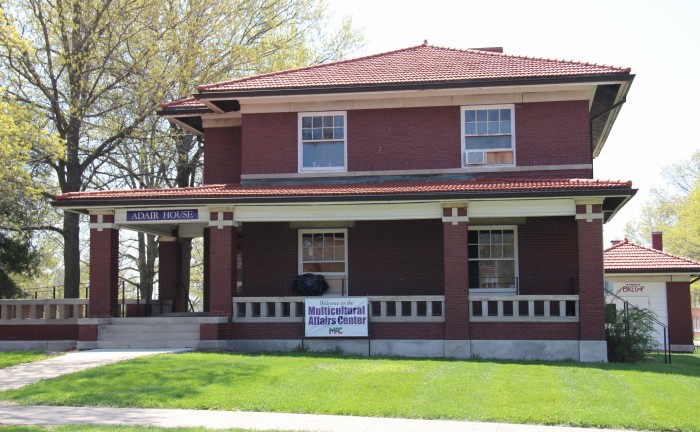
Graduation is intended to be a ceremony of celebration, but it’s one which can turn into a stressful day of hiding, pretending and suppressing for an LGBTQ graduate. With potentially unsupportive family members coming into town and a still heteronormative culture on college campuses, LGBTQ students don’t always get to dress how they want, use the names they wish or use their chosen pronouns at graduation ceremonies.
This year, the Multicultural Affairs Center wanted to challenge the possible alienating effects of graduation ceremonies for LGBTQ students by hosting a separate ceremony called Lavender Graduation.
Lavender Graduation ceremonies originated in 1995 when an openly lesbian professor Ronni Sanlo at University of Michigan was denied the right to attend the graduation ceremonies of her biological children. In response, she decided to host a separate graduation ceremony for LGBTQ youth at her university, according to the Human Rights Campaign website. Since then, Lavender Graduation ceremonies have taken place on college campuses all around the country.
The color lavender represents the combination of the pink triangle gay men were forced to wear in Nazi Germany concentration camps and the black triangle lesbian women were also forced to wear, according to the Human Rights Campaign website.
Summer Pennell, English education assistant professor and LGBTQ safe zone coordinator, originally approached Brad Turnbull, MAC program coordinator, with the idea of a Lavender Graduation ceremony at Truman State University.
Turnbull said this will be the first annual Lavender Graduation ceremony at Truman.
Pennell, who is an open lesbian, attended her own Lavender Graduation after getting her doctoral degree. Pennell said in her experience, Lavender Graduation Ceremonies tend to be more personal and casual. She hopes this ceremony will be as positive as her own ceremony was.
“The whole point of [Lavender Graduation] is just for queer and trans students to be able to celebrate graduation as they are,” Pennell said. “Not all queer students have struggles with their family relationships, but for those who do, a Lavender Graduation can serve as an opportunity to be their full selves and be able to celebrate their graduations and celebrate themselves at the same time, and not have to separate themselves or hide part of themselves.”
Pennell said safe spaces created by the Lavender Graduation Ceremony are especially crucial to those within the LGBTQ community because they allow students to present how they feel most comfortable and to go by their chosen names and pronouns. She also said safe spaces are important because they provide intentionally inclusive environments.
For more information about Truman’s Lavender Graduation Ceremony, pick up a copy of The Index on April 26.
